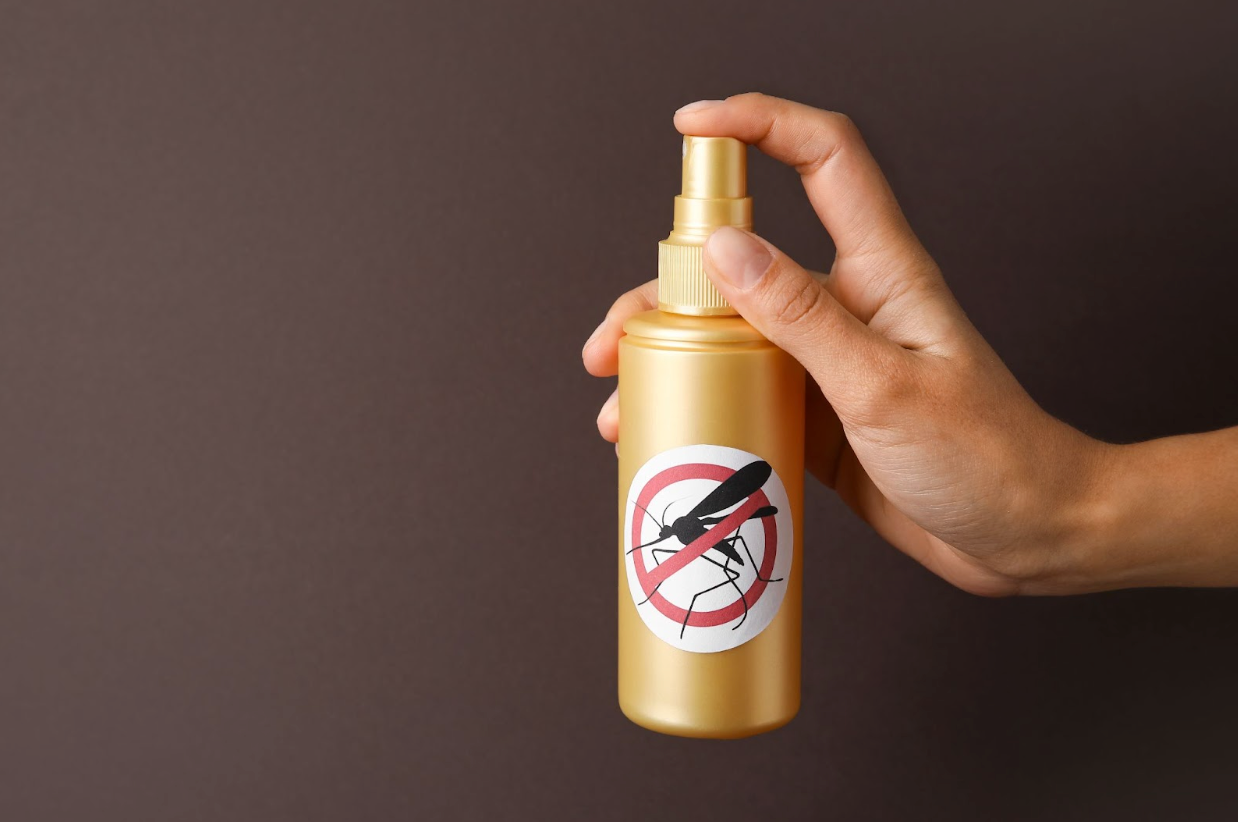
Picaridin vs Deet vs Permethrin: Comparing Insect Repellents
From mosquitoes to ticks, many pests are both irritating and dangerous. Insect repellents with DEET, Picaridin or Permethrin are commonly used to keep them at bay. But which is best for you and your family?
Insect Repellents for the Skin
When it comes to personal insect repellents applied directly to your skin, DEET and Picaridin are two of the most widely used and effective options.
DEET
DEET is a widely used repellent that deters pests by making it harder for them to smell humans. Despite being effective, it has faced controversy over potential health and environmental impacts, including skin irritation and toxicity concerns. Some countries have even banned DEET due to these risks.
Picaridin
Picaridin, a synthetic compound, is also effective against various pests. It is an excellent choice for people looking for a scentless insect repellent, and is also less greasy and less likely to cause skin irritation compared to DEET. However, its safety has not been as extensively studied as DEET's.
Repellent For Clothing and Gear: Permethrin
Permethrin, a synthetic insecticide, mimics natural extracts from chrysanthemum flowers. Unlike DEET and picaridin, it is not for direct skin application but is used on clothing and gear. It can kill insects on contact but is toxic to cats, fish and beneficial insects like bees.
Choosing the Right Insect Repellent: MosquitoNix® PRO Botanical vs. DEET vs. Picaridin
When selecting an insect repellent for your skin, it's crucial to consider effectiveness, safety and environmental impact. Let's compare MosquitoNix® PRO Botanical with popular synthetic options DEET and Picaridin.
MosquitoNix PRO Botanical: Nature's Shield
-
Key Ingredients: Cedar Wood Oil, Cinnamon Oil, Thyme Oil
-
Benefits:
-
Over 90% repellency against mosquitoes
-
Safe for all: humans, pets and beneficial insects
-
Environmentally friendly
-
Pleasant botanical scent
-
Technology: Micro-fluidized encapsulation for long-lasting protection
DEET: The Traditional Choice
-
Highly effective against various insects
-
Long-lasting protection
-
Concerns: Potential skin irritation, plastics degradation
-
Banned in some regions due to safety concerns
Picaridin: The Modern Synthetic
-
Developed as a less irritating alternative to DEET
-
Comparable effectiveness to DEET
-
Odorless and non-greasy
-
Generally considered safer for use on skin and gear
-
Not known to have environmental concerns
MosquitoNix PRO Botanical: Our Top Pick for Natural Skin Repellent
While DEET and Picaridin offer proven effectiveness, MosquitoNix PRO Botanical provides a unique combination of benefits:
-
Natural ingredients without sacrificing efficacy
-
Safe bug repellent for the family (including children and infants) and the ecosystem
-
A true non-toxic mosquito spray with no harsh chemicals or synthetic compounds
-
University-tested to outperform pyrethrums
Our botanical solution offers powerful protection without the drawbacks associated with synthetic repellents. It's an ideal choice for those seeking effective pest control that aligns with eco-conscious values.
Experience the best of nature and science with MosquitoNix PRO Botanical - effective, safe and environmentally responsible pest control.
Final Thoughts on Choosing a Natural Mosquito Skin Repellent
With growing concerns about the risks of chemical ingredients, more people are seeking natural mosquito repellent alternatives. At MosquitoNix®, we offer eco-friendly solutions designed to protect your family without harsh chemicals. In addition to our portable insect control options, our advanced insect misting systems and QuickNix® mosquito fogging treatments deliver reliable insect protection. Contact MosquitoNix today to find the best solution for your needs.
Leave a comment
Comments will be approved before showing up.
Also in News

Can Pets & Kids Have Fun In The Yard Right After A Mosquito Treatment? What Every Long Island Family Should Know

Kid Friendly Mosquito & Tick Defense on Long Island
Kid Friendly Mosquito & Tick Defense on Long Island


